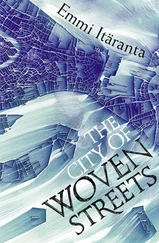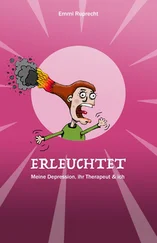Although I didn’t understand my mother’s request, I placed the message-pod back on the wall rack, went to the kitchen and picked up from the worktop an unwashed spoon I had used that morning. There was a brown stain marking the metal where a few drops of tea had dried on it. I wrapped it in a piece of cloth, searched in a bottom drawer for a seagrass pouch used for sending mail and dropped the spoon inside. I fetched my tea master’s book from my room, tore out a page and scribbled a few lines on it: Dear mother, this is your keepsake until we meet again – Love, N. I folded the paper and pushed it into the pouch, then closed the mouth and fastened it with a piece of string. I could send it from the village the next day. I only hoped it would find its way to Xinjing.
Days grew longer and warmer rapidly over the next two weeks as the spring reached towards summer. Water flowed across darkness, dissipated from sun-baked stones and ran away. When I wasn’t thinking of the books or the expedition or my parents, I was thinking of Sanja. I wanted to talk to her, tell her how I had been searching for my way out of the silence since my father’s death, but I never seemed to find the right moment. She had been weary and quiet lately, and I thought there were things she was not telling me. She almost never had time to go scavenging. When I asked why, she would avoid answering.
I was still wading through Miro’s entries. I was trying to put his tales in some kind of order, although I knew it would inevitably be imaginary. The task was made more difficult by the fact that during Miro’s time there had been two other tea masters in the house. Miro had assumed the title when his father died, but he hadn’t had any children of his own, so his apprentice had been his cousin Niko Kaitio. However, Niko had died young, a mere few months after his graduation, so his son Tomio had inherited the apprenticeship and the title. Niko and Tomio didn’t have Miro’s literary tendencies, and Miro had unhesitatingly hijacked the blank pages in their books for his own writings.
The book I was currently leafing through had been written well before Miro’s time. I had earlier marked the final section, which was filled with Miro’s writing, but this was the first time I had come back to read it. The entry was dated the final year of the Twilight Century, which I knew by Tomio’s journal to also be the year of Miro’s death.
I know the time of my last ceremony is almost at hand, and I wish to record this story before my heart stops. I haven’t written it down before, because I didn’t consider it safe to do so. But now four decades have passed since these events took place, and I don’t believe that knowledge of them can any longer harm anyone. A time may come when it is all well that someone other than water remembers and knows, for too many stories are lost, and too few of those that remain are true.
I quickly counted forty years back from the date. It was consistent with the year mentioned on the silver-coloured disc. I crossed my legs on the cushion, placed the book on my lap and read on.
I had only been working as a tea master for a few years, and my father had died the year before, when one evening after dark there was a knock on my door. As I opened it, I found two men and a woman standing on the veranda. They told me their names and said they would be willing to do some work in the garden and house in exchange for food and water. This was nothing out of the ordinary at the time. Many people had lost their homes and possessions in the wars, and for many the only way to find water and shelter was to travel from village to village in search of work. Yet these people didn’t look like ordinary vagabonds. Their clothes seemed fairly new and they had the restless air of people on the run. One of the men was wounded. A stained rag was tied around his arm, and the surrounding skin was badly bruised. Under the edge of the cloth showed a tattoo: a narrow-bodied Ocean-Dragon that carried a snowflake in its claws. The way they said their names – one too quickly, another stammering – made me suspect the names were made up. But they were clearly exhausted, as if they had been travelling for days without sufficient rest, and they carried nothing but a small bag made of one of those old weatherproof materials. I decided they didn’t look too dangerous and accommodated them in the teahouse for the night. I didn’t keep anything of value in the teahouse, so I wasn’t worried about being robbed, and I’ve always been a light sleeper, so I knew I would hear if they tried to sneak up into the house in the middle of the night. There was a sturdy lock on the door that couldn’t be opened without quite a noise. I gave them some bread and tea, blankets and pillows and a lantern, and showed them the way across the garden. I then came back to prepare a soothing ointment for the wound, but when I returned with it to the teahouse, I found them all fast asleep. I left the jar outside the door.
The next morning while they were still sleeping the baker’s errand boy came to bring me bread and had some new gossip to share. He told me that soldiers had been making rounds in the village the night before, knocking on doors and looking for three war criminals. When my guests woke up, I invited them in for breakfast and watched them closely. They were hard to read. Their manner was good and fairly formal, as if they were highly educated. This supported the possibility that they might have been brought up enjoying some privileges of the military. At the same time, some of the remarks they made struck me as strange, even inappropriate for someone from a military background. I found that I could not place them. I needed to know more.
As we were having another cup of tea, I mentioned to them what I had heard earlier in the morning. They fell silent and their faces turned to stone, and I knew it was them the soldiers were after. I asked them to give me a reason why I shouldn’t report their location.
The men began to object to this, but the woman silenced them with a single movement of her hand. When her sleeve end moved, I noticed that she had a dragon tattoo on her wrist, similar to the one I’d seen on the wounded man’s arm.
She told me they were returning from the Lost Lands, where they had been investigating the drinkability of the water and the recovery of the areas from the catastrophe. This surprised me, because I had thought it was illegal to go to the Lost Lands. When I said this aloud, the woman admitted that their expedition was illegal and secret. I saw in her companions’ expressions that they would rather have kept all this to themselves, but the woman took a sip of tea, straightened her back and continued to talk.
The army of New Qian had somehow learned about their expedition and begun to trace them. Their leader had been killed on a water-fetching trip near Kolari, and they had been on the run ever since. A few days earlier one of their companions had gone missing and taken some of the backups of their recordings and the video camera they had used to shoot material. The rest of the backups were with them, and they didn’t want the army to get their hands on those. They didn’t know if their friend was dead or alive. Their intention was to hide near the village for a few days in the hope that the soldiers would head elsewhere.
The three of them were looking at me. The shorter, brown-haired man was holding a hand to his wound, which seemed to cause him constant pain. Sweat glistened on his face. The tall man’s expression didn’t give anything away.
The woman asked for me not to report them.
I asked them why they had come to the tea master’s house, and why they believed I would help them.
Читать дальше
Конец ознакомительного отрывка
Купить книгу












